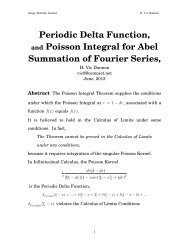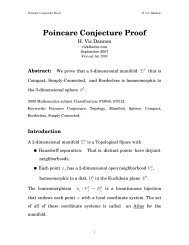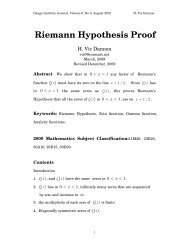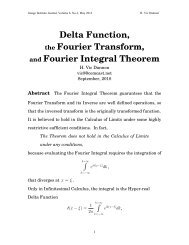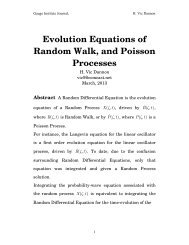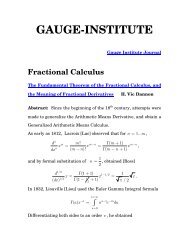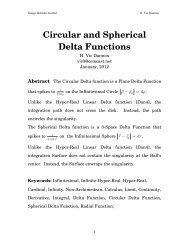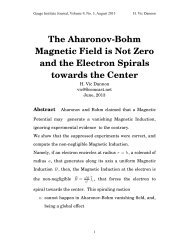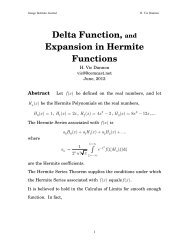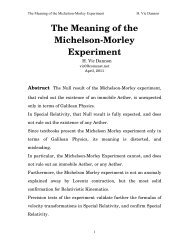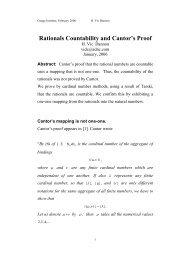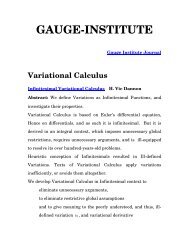Jordan Lemma Proof - Gauge-institute.org
Jordan Lemma Proof - Gauge-institute.org
Jordan Lemma Proof - Gauge-institute.org
Create successful ePaper yourself
Turn your PDF publications into a flip-book with our unique Google optimized e-Paper software.
<strong>Jordan</strong> <strong>Lemma</strong> <strong>Proof</strong><br />
H. Vic Dannon<br />
In MAPLE, we confirm that<br />
and<br />
θ=<br />
∫<br />
π<br />
2<br />
θ=<br />
0<br />
θ=<br />
∫<br />
π<br />
2<br />
θ=<br />
0<br />
e<br />
e<br />
−2cosθ<br />
−2cosθ<br />
dθ<br />
dθ<br />
=<br />
=<br />
(1/2)*Pi*BesselI(0, 2)-(1/2)*Pi*StruveL(0, 2)<br />
(1/2)*Pi*BesselI(0, 2)-(1/2)*Pi*StruveL(0, 2)<br />
In the notations of Abramowitz, and Stegun<br />
BesselI(0, 2)=Modified Bessel Function I<br />
0(2)<br />
StruveL(0, 2)=Struve Function L (2) .<br />
That is, both integrals equal<br />
π<br />
( 0(2) 0(2)<br />
)<br />
2 I − L .<br />
This confirms Whittaker’s guess of equality.<br />
Nevertheless, it seems easier to complete the <strong>Jordan</strong> <strong>Lemma</strong> <strong>Proof</strong><br />
by bounding<br />
θ=<br />
∫<br />
π<br />
2<br />
θ=<br />
0<br />
e<br />
−mρcosθ<br />
0<br />
d θ, then by trying to prove the equality.<br />
4. Completed <strong>Proof</strong><br />
To complete the <strong>Jordan</strong> <strong>Lemma</strong> <strong>Proof</strong>, we need to bound<br />
ρ<br />
θ=<br />
∫<br />
π<br />
2<br />
θ=<br />
0<br />
e<br />
−ρcos<br />
θ<br />
dθ, similarly to the bounding of<br />
ρ<br />
π<br />
2<br />
θ=<br />
−ρsin<br />
θ<br />
∫ e dθ.<br />
θ=<br />
0<br />
7



